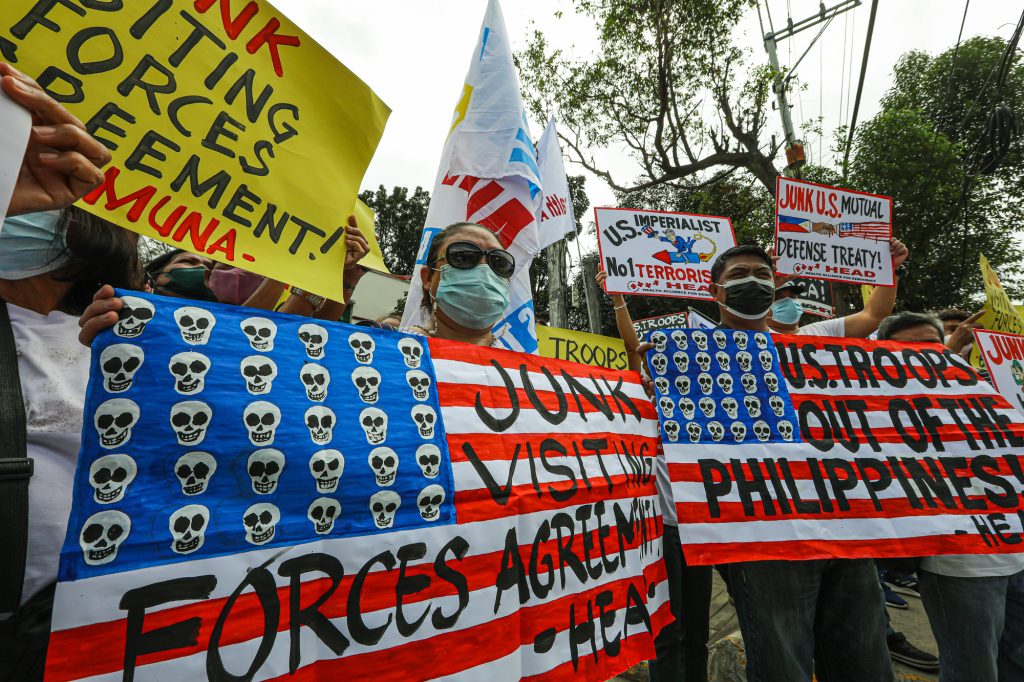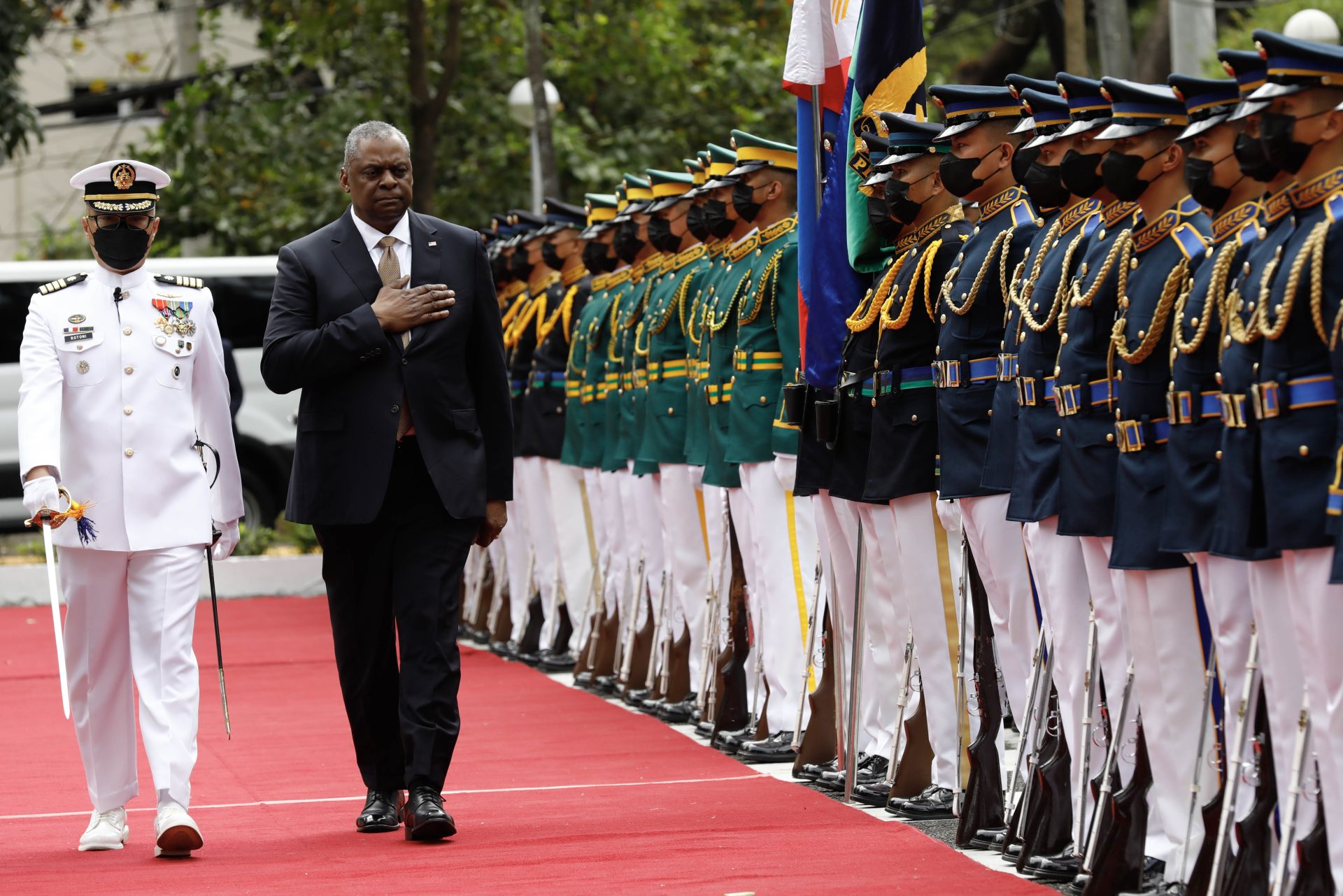The head of the Military Ordinariate of the Philippines expressed hope that a new defense deal between the United States and the Philippines will benefit the country and its people.
The United States and the Philippines announced a deal on Thursday, February 2, to give US troops access to another four military bases in the country.
The agreement to expand cooperation in “strategic areas of the country” was made during a visit by US Defense Secretary Lloyd Austin.
Beijing’s growing assertiveness on Taiwan and its building of bases in the disputed South China Sea have given fresh impetus to Washington and Manila to strengthen their partnership.
“May this meeting embrace always the common good of the nation and our people,” said Bishop Oscar Jaime Florencio in a message read on Church-run Radio Veritas 846.
The bishop expressed hope that the new deal will inspire other countries and military forces to go into dialogue and promote understanding and peace.
“I wish and pray that whatever is the objectives and plans for the visit of the US Defense Secretary, may it be fruitful, and hopefully will benefit our country and our Armed Forces,” said Bishop Florencio.
Given its proximity to Taiwan and its surrounding waters, the Philippines’ cooperation would be key in the event of a conflict with China, which a four-star US Air Force general has warned could happen as early as 2025.
“We’re pleased to announce today that President Marcos has approved four new (Enhanced Defense Cooperation Agreement) locations and that brings the total number of EDCA sites to nine,” said Austin during a news conference with his Philippine counterpart Carlito Galvez.
Talks were ongoing for a potential 10th site, a senior Philippine official told AFP earlier.
The announcement came as the United States reopened its embassy in the Solomon Islands, after a 30-year hiatus, as it competes with China for influence in the South Pacific.

The United States and the Philippines have a decades-old security alliance that includes a mutual defense treaty and the 2014 EDCA pact, which allows US troops to rotate through five Philippine bases, including those near disputed waters.
It also allows the US military to store defense equipment and supplies on those bases.
The EDCA stalled under former president Rodrigo Duterte, but Marcos has sought to accelerate its implementation.
Galvez told reporters the location of the new sites would be made public after local communities and officials had been consulted.
But it has been widely reported that most of the new locations will be on the main island of Luzon — the closest Philippine landmass to Taiwan — where the US already has access to two bases.
The fourth will reportedly be on the western island of Palawan, facing the Spratly Islands in the hotly contested South China Sea, taking the number of sites there to two.
‘Illegitimate claims’
Austin said the allies were committed to “strengthening our mutual capacities to resist armed attack,” as he accused China of making “illegitimate claims in the West Philippine Sea.”
Manila refers to waters immediately west of the country as the West Philippine Sea.
The United States is also seeking to bolster alliances with other nations to counter China’s rapid military advances, including its AUKUS partnership with Australia and Britain.
Australia has agreed to step up the pace of military interactions with the US, while Japan is planning to enter joint exercises with both countries.
While Marcos has sought to strike a balance between China and the United States, he has insisted he will not let Beijing trample on Manila’s maritime rights.
About 500 US military personnel are currently in the Philippines, with others rotating through the country for joint exercises as required.

Protest against EDCA
Around 100 protesters rallied outside Philippine military headquarters on Thursday, calling for EDCA to be scrapped.
“Allowing US use of our facilities will drag us into this conflict (over Taiwan) which is not aligned with our national interests,” said Renato Reyes of the leftist alliance Bayan.
The US military presence has long been a sensitive issue in the Philippines.
The United States previously had two major bases in its former colony, but in 1991 the Senate voted to terminate the lease agreement after growing nationalist sentiment.
Beijing claims sovereignty over almost the entire South China Sea and has ignored a ruling at The Hague that its claims have no legal basis.
The Philippines, Vietnam, Malaysia and Brunei also have overlapping claims to parts of the sea.
China also claims self-ruled, democratic Taiwan as part of its territory, to be reclaimed one day, by force if necessary.
“Looking at the location of the proposed sites, it seems pretty clear that these sites are in relation to a Taiwan contingency,” said Greg Wyatt of PSA Philippines Consultancy. – with a report from Agence France Presse







